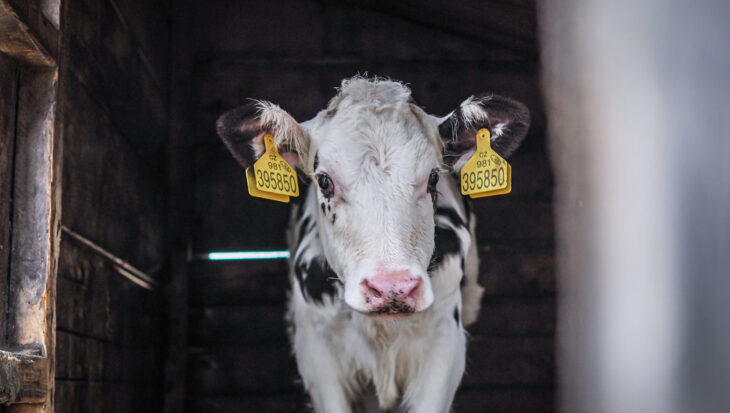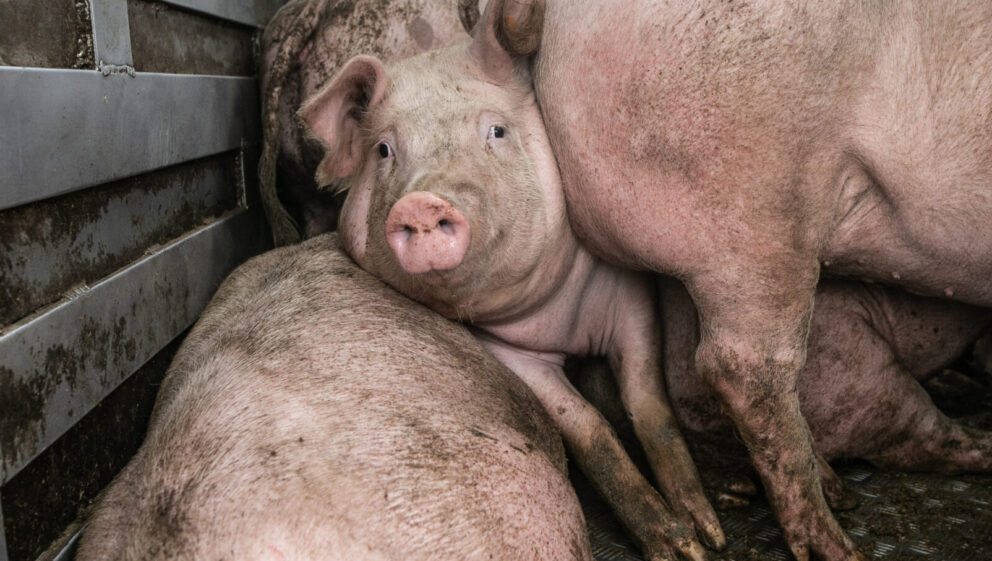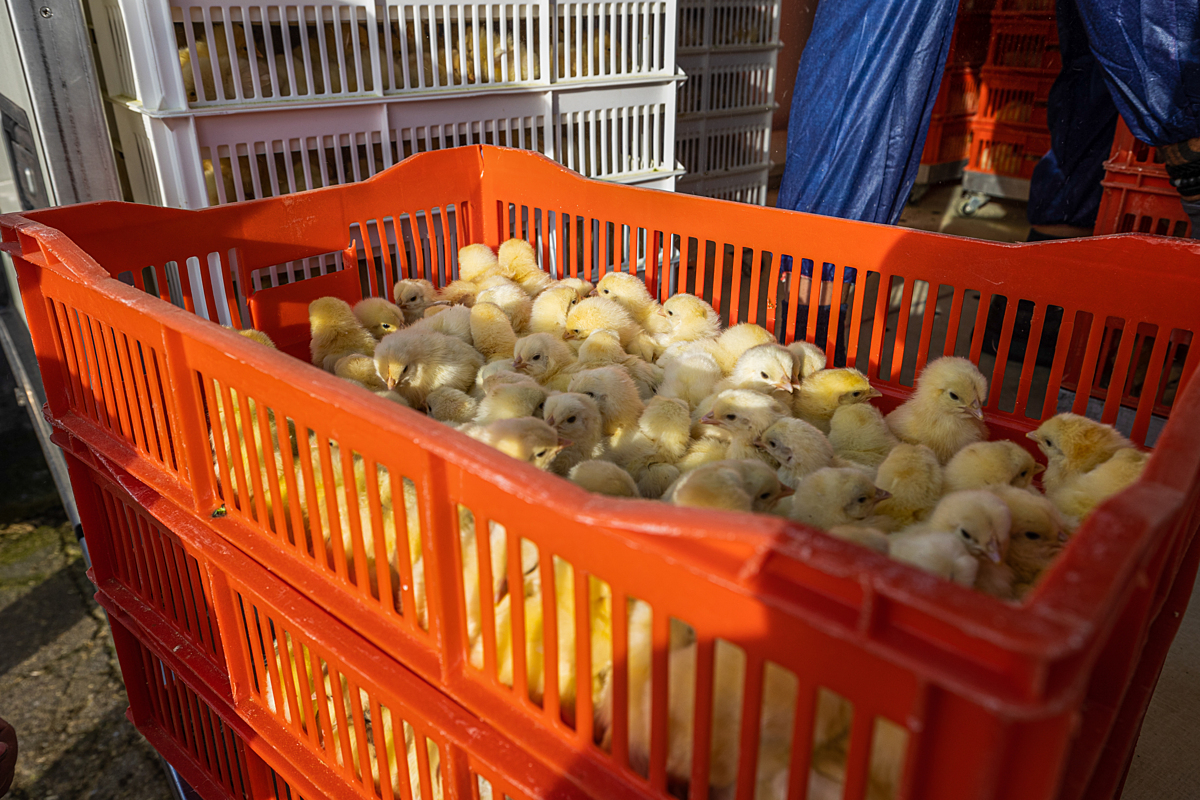Yesterday, we shared the news that the Animal Welfare (Livestock Exports) Bill has passed its final stage in Parliament and will soon be enshrined into law. But does it go far enough?
The new legislation is set to cover cows, sheep, goats, pigs and horses destined for slaughter or fattening overseas. This will change the lives of millions of animals who are destined for conditions where welfare standards are much lower than our own – or even illegal, like tens of thousands of calves exported only to be confined to veal crates.
However, there are also significant loopholes. Exports for other reasons, such as for breeding and for competitions or shows, will be able to continue. Poultry exports can also continue, affecting tens of millions of chicks every year. In 2019, 9 million chicks were transported as far as Malaysia, the Philippines and Bangladesh, almost as soon as they had hatched. Another drawback is that Northern Ireland (NI) is also not included in the Bill, with the UK Government stating that this is “to ensure the region’s farmers have unfettered access” to markets. This is significant because NI is a major source of unweaned calves, with many travelling for 30 hours without rest or food.
Clearly, the Bill does not go far enough.
It is also worth acknowledging the tens of thousands of animals who suffer tremendously when transported domestically, within the UK, for whom there is very little legal protection. The number of animals who can be transported is limited only by the size of the vehicle, leading to overcrowding, and journey times can be long. Pigs, for example, can be transported non-stop for 24 hours without any ‘rest’ stops. There is also no legal requirement for animals to have access to food during these journeys and only some species, like horses, must have constant access to water. Finally, government guidelines are frequently ignored by transporters. It remains unclear how successfully the new Live Exports Bill will be enforced,
It’s clear that ALL live animal transport needs to stop, as it is inherently unnatural for animals and causes unnecessary stress and suffering. Whilst this latest news is undoubtedly a win to be celebrated – not least because so many incredible animal rights activists have dedicated their lives to seeing the practice banned – there is clearly much more work to be done.



